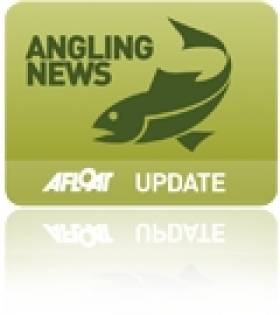Displaying items by tag: River Aherlow
Two Prosecuted For Illegal Fishing of Spawning Salmon
#Angling - Two men have been prosecuted in Co Tipperary for illegal fishing of spawning salmon.
Michael Harding of Bansha and Neill Collins of Cullen were prosecuted by Inland Fisheries Ireland (IFI) following investigations on the River Aherlow at Angelsboro, Co Limerick on 2 January this year.
IFI fishery officer Noel Power told Judge William Early at a sitting of Fermoy District Court on 3 May that both men has been observed fishing by night with a lamp and a spear.
Having heard the evidence, Judge Early convicted both men and levied fines on each: €350 for Collins and €300 for Harding, who informed the court he was unemployed. Both men were also ordered to pay costs amounting to €418.90.
"Wild Atlantic Salmon are part of our heritage," said Minister Fergus O’Dowd following the prosecution, "and the killing of spawning fish is an environmental outrage.
"I once again commend the work of IFI staff, working in remote areas, in the worst of weather, late at night protecting our wild salmon."
IFI reminds all anglers that interference with fish over their spawning beds is a serious offence, and that its staff are involved trying to stamp out this activity.
Much illegal fishing takes place at night, and IFI staff patrol the rivers during winter nights to ensure the protection of fish stocks.
"This illegal fishing is both barbaric and a threat to spawning salmon," says the fisheries agency. "Spears and modified forks are sometimes used in tandem with lights in the illegal killing of spawning salmon."
























































